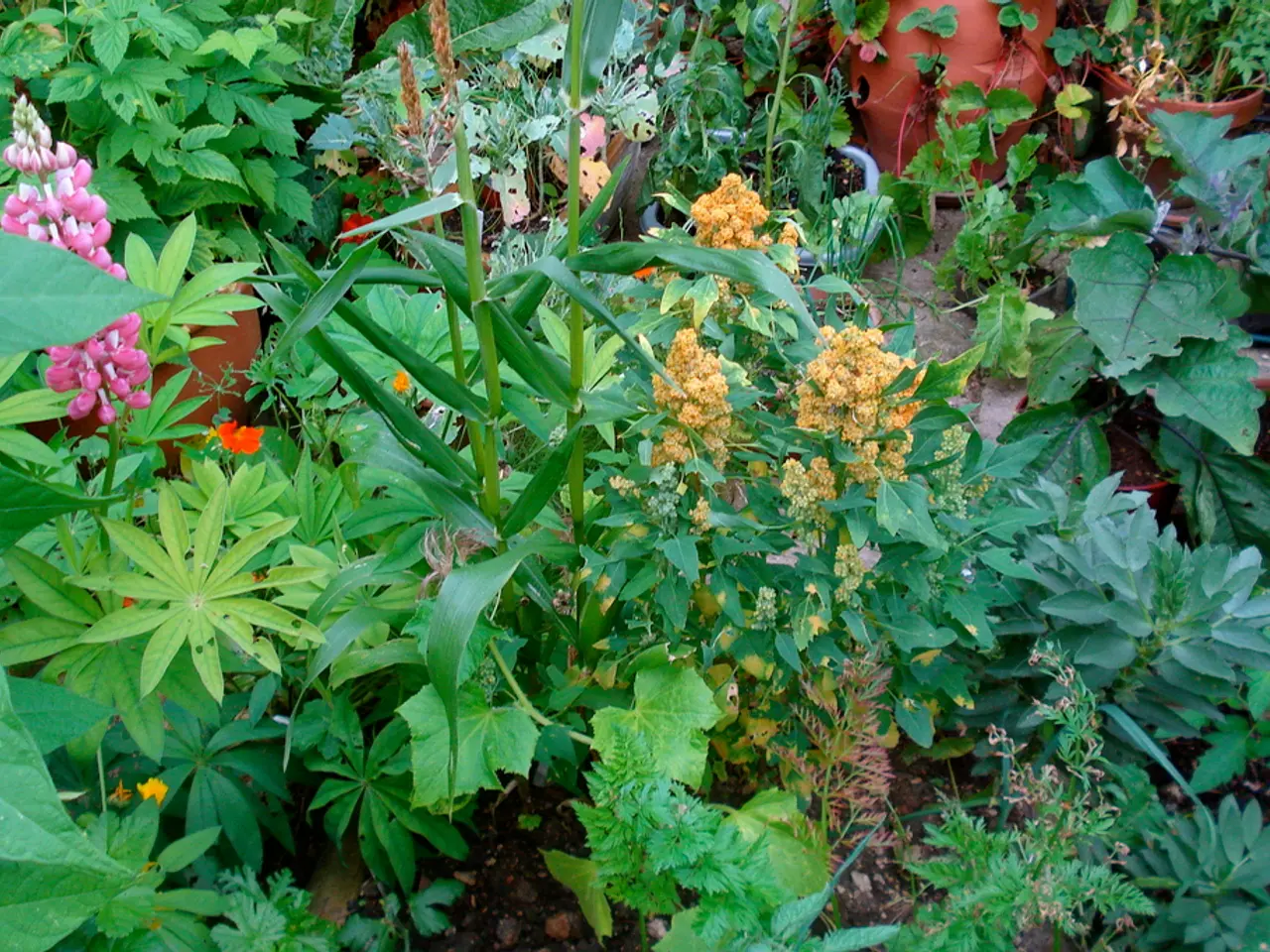Efficient Vegetable Cultivation without Soil: A Convenient Method for Maximizing Yield with Minimal Work
No-dig gardening is a simple yet effective method that's gaining popularity among both beginner and experienced gardeners. This approach to gardening focuses on maintaining soil structure and promoting healthy biological activity, all while reducing the time and effort spent on weeding and tilling.
The essence of no-dig gardening lies in avoiding soil disturbance and instead feeding the soil from the surface with organic matter like compost, mulch, or well-rotted manure. This organic layer is added on top of the soil without digging or tilling, allowing earthworms and microorganisms to naturally integrate these materials into the soil below over time. This process preserves soil structure and microbial life, promoting healthy biological activity essential for nutrient cycling.
Compared to traditional gardening methods, which involve digging or tilling the soil, no-dig gardening offers several benefits. It maintains soil structure and microbial life, reduces weed growth, improves soil fertility gradually, saves labour and time, enhances moisture retention, and supports sustainable, chemical-free gardening that encourages biodiversity.
In contrast, traditional gardening (tilling/digging) can disrupt microbial communities and soil structure, provide immediate planting and more uniform nutrient distribution, but may cause erosion and loss of organic matter over time if done excessively.
No-dig gardening is an easy, sustainable way to garden that works with nature, not against it. It involves layering organic matter like compost, straw, and mulch on top of the ground, which decompose into a nutrient-rich growing medium over time. This method creates rich, loose soil full of beneficial microbes and nutrients.
Seeds or seedlings are planted directly into these layers, which help retain moisture, meaning the garden stays damp longer and requires less watering. Weed control can be achieved by using a barrier like cardboard or thick newspaper to cover the ground and smother weeds.
While no-dig gardening doesn't eliminate garden pests entirely, it fosters a thriving ecosystem of earthworms, fungi, and microbes that work together to support plant growth naturally. Gathering enough compost and mulch can require effort upfront, but the investment pays off in healthier, more productive soil.
No-dig gardening means less physical labour, as one only needs to layer organic materials and watch the garden flourish with minimal effort. With patience, soil structure and fertility improve gradually, leading to thriving, low-maintenance gardens. In sum, no-dig gardening favours long-term soil health and sustainability by mimicking natural ecosystems where organic matter accumulates and breaks down on the surface.
- The organic layer added on top of the soil in no-dig gardening includes compost, mulch, or well-rotted manure.
- By not digging or tilling the soil, no-dig gardening promotes healthy biological activity essential for nutrient cycling.
- No-dig gardening supports a sustainable, chemical-free gardening lifestyle, which encourages biodiversity and enhances moisture retention.
- Seeds or seedlings are planted directly into the layers of compost, straw, and mulch in a no-dig garden.
- Despite offering several benefits, traditional gardening methods, which involve digging or tilling, can disrupt soil structure and microbial communities over time.




